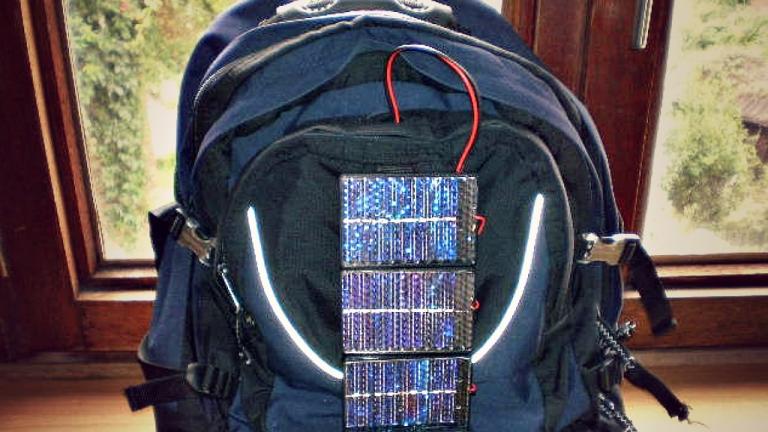
Shutterstock“Wait — so is coal good for the environment?”
Let’s briefly review the science on anthropogenic climate change: 97 percent of articles on the subject published in peer-reviewed scientific journals over two decades have agreed with the consensus that humans are causing global warming. Now, granted, climate change is a theory, in the same way that gravity is a theory: It is the framework that explains indisputable phenomena, in this case the Earth’s warming temperatures since the dawn of the Industrial Age. So it follows that, just as school textbooks teach students about gravity, they should teach them about climate change, right?
Not if you live in Wyoming. Last month Dick Cheney’s home state passed a budget with a footnote that prohibits the use of public funds to adopt the Next Generation Science Standards (NGSS). The standards were recently developed by the National Research Council, the National Science Teachers Association, and the American Association for the Advancement of Science, in concert with 26 states. They’re intended to replace a hodgepodge of state standards of varying quality, providing a national framework for teaching the most up-to-date science. Naturally, this includes climate change (though the climate sections were watered down).
But Republican State Rep. Matt Teeters, who holds an aptly abbreviated B.S. in political science from the University of Wyoming, knows more than all those experts. Teeters, who sponsored the budget footnote, complained that the standards “handle global warming as settled science.” And why should scientists tell everyone else what constitutes “settled science”? (Teeters did not respond to a call from Grist, which was hoping to ask whether he intends to also remove gravity from the state science curriculum.)
Republican Gov. Matt Mead signed the budget into law, and declined to use his line-item veto to get rid of the anti-NGSS footnote. Mead, who got his bachelor’s degree in “radio/television” from Trinity University in Texas, also knows more about climate science than the NGSS authors. He has previously said, “I am unconvinced that climate change is man-made, but I do recognize we may face challenges presented by those who propose and believe they can change our climate by law with ill-thought-out policy like cap and trade.” In fact, his administration has no shortage of geniuses who know more about science than any scientist. State education board chair Ron Micheli told the Casper Star-Tribune, “I don’t accept, personally, that [climate change] is a fact.” Micheli, a rancher by trade, received a B.S. in animal science from the University of Wyoming. He was voted “Outstanding Animal Science Student” by the agriculture honorary fraternity Alpha Zeta. How many members of the IPCC can say that?
Wyomingites with experience in science education support the NGSS. Before the legislature passed its budget, a state education committee of about 30 experts unanimously recommended adoption of the standards. And earlier this month, a coalition of concerned scientists and educators — including the Wyoming Science Teachers Association, the Wyoming Education Association, the American Meteorological Society, and the Union of Concerned Scientists — sent a letter to the state board of education expressing their disapproval of the anti-NGSS footnote. Since the budget applies to the next fiscal year, starting July 1, they called on the board to implement the new standards right now, before it is prohibited.
Mead’s education policy advisor Mary Kay Hill rejected the request. “Governor Mead has expressed concern with the role that scientists play in coming to political conclusions regarding climate change,” she wrote in a letter in response. Hill added, in a turn of phrase that would make even one of George Orwell’s villains blush, “The state’s science standards should be written to ensure that a science education is free from political influence.”
Wyoming is the first state to outright reject the NGSS. (At least 10 states have officially adopted the standards, and others are in the process of doing so; all in all, more than half of states are expected to come on board.) Some conservative complaints about the science standards have come from religious zealots angry over the teaching of evolution, but that doesn’t seem to have been a decisive factor in Wyoming, which is not an especially religious state. It is extremely conservative, but so are a lot of states.
What makes Wyoming special is its dependence on fossil fuel extraction. Wyoming is the country’s largest producer of coal. In 2012 it accounted for 39.5 percent of the U.S. total, nearly four times the production of second-place West Virginia. Wyoming is the eighth largest producer of oil in the U.S. and the fifth largest producer of natural gas. Wyoming does not have an income tax because it draws so much revenue from taxes on its extractive industries. Another big industry in the state is cattle ranching — beef and veal account for 78 percent of its agricultural revenue — and that too contributes to climate change thanks to farting and belching livestock. Wyoming residents and businesses are also energy hogs. They consume the most energy per capita of any state.
So Wyoming’s politicians worry that if they admit climate change is happening, that implies action should be taken, action that could harm the state’s economy. “There’s all kind of social implications involved in [acknowledging climate change] that I don’t think would be good for Wyoming,” said Teeters. At a board of education meeting on April 11, Micheli said that climate change education “has to be based on the economy of this state.” In case you’re wondering what that means, he was quite clear: “This state’s economy is based on fossil fuels,” so people should “talk about the benefits that accrued to our industrial society because of the institution of fossil fuels.” Still, Micheli insisted that he’s fine with some teaching of climate change — “but don’t offer it as the only alternative that’s there.”
Fossil fuel interests have always been powerful in Wyoming, say political experts. Conservative activists in the state “got really organized this year and filled legislators’ inboxes up with email” opposed to the NGSS, says Dan Neal, director of the Equality State Policy Center, a progressive think tank in Casper, Wyo. “We are a mineral-rich state — it’s the basis of our economy here. What we live with, as a result of that, is those guys have extraordinary power at the legislature.”
Here’s an example of that power in action: In 2012, a sculpture called Carbon Sink, made from wood destroyed by an infestation of pine bark beetles — which has been linked to climate change — was removed from the University of Wyoming campus in Laramie under political pressure. As Slate reported, “After the university announced the installation of Carbon Sink, Marion Loomis, the president of the Wyoming Mining Association, wrote to a university official and asked: ‘What kind of crap is this?‘ Both industry representatives and state legislators weighed in on the sculpture, some threatening the university’s funding in no uncertain terms.” The university’s president caved.
Wyoming is swimming against the tide on this issue. As The New York Times reported on Sunday, “Schools around the world are beginning to tackle the difficult issue of global warming, teaching students how the planet is changing and encouraging them to think about what they can do to help slow that process.”
And, conservative politics or no, many Wyoming residents understand the importance of climate education and don’t want to be on the wrong side of history. Take, for example, the editorial board of the Wyoming Tribune Eagle, which wrote last week: “We might not know the exact extent to which man has affected climate change, but we do know that Wyoming is filled with political cowards.” And it called those cowards out by name: Teeters, Mead, and Micheli.



